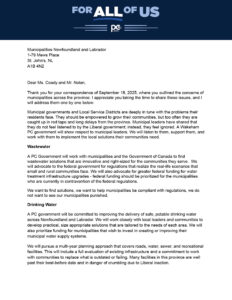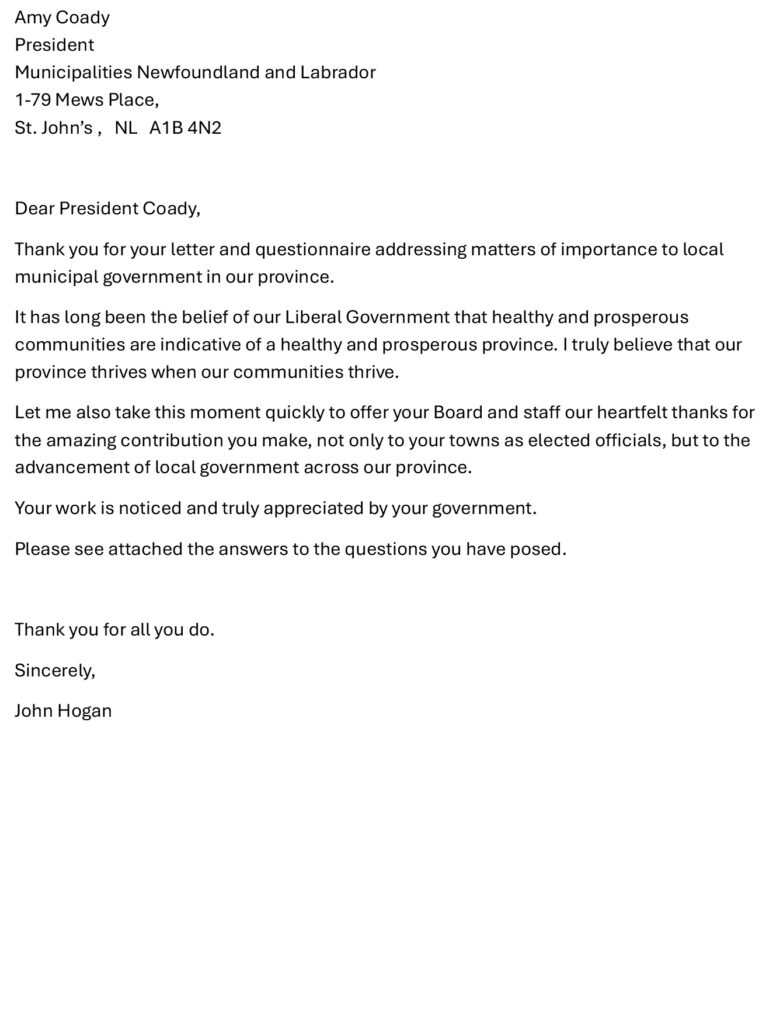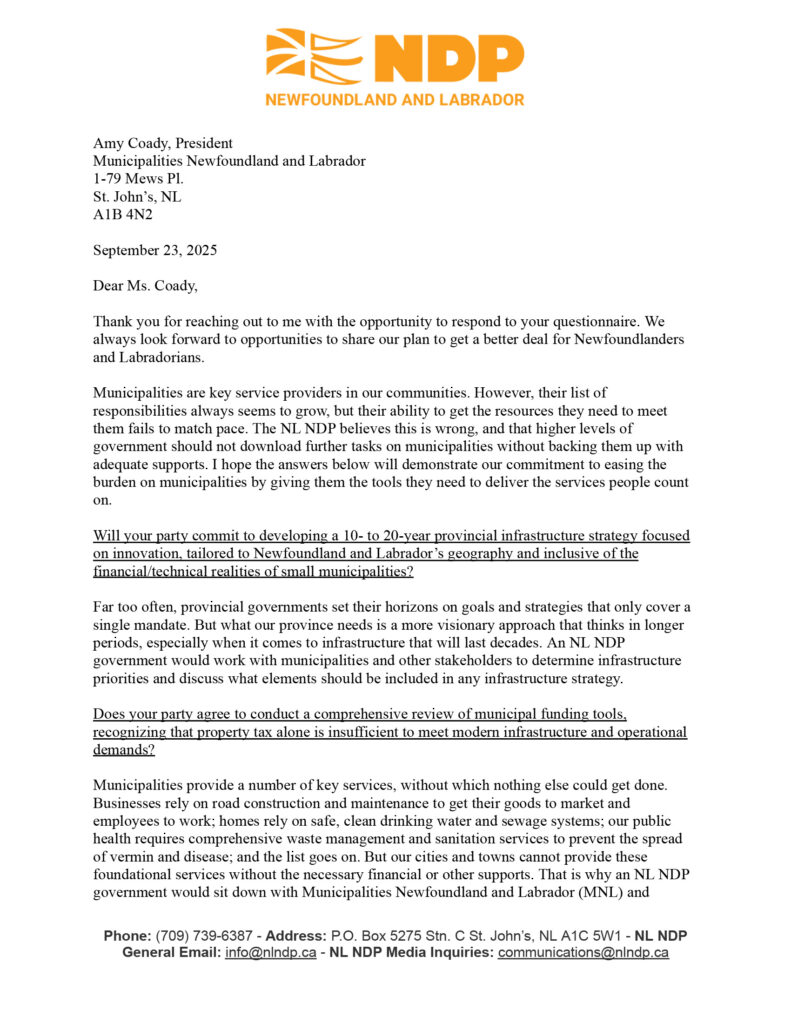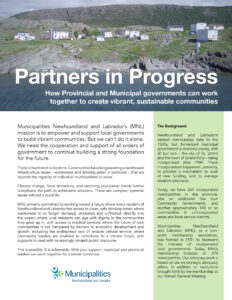Provincial Election 2025 – A Municipal Perspective
Ahead of the 2025 Provincial Election, Municipalities Newfoundland and Labrador (MNL) is once again calling on candidates and government to prioritize the resolution of long-standing municipal concerns, including infrastructure, public safety, and economic development issues.
MNL sent this letter to Provincial party leaders, asking for support of municipal issues of concern. The responses from each party can be downloaded in the links below. The responses from each Party have been posted unaltered and as received.
MNL, on behalf of towns and cities across the province, is urging Provincial Government parties and candidates to consider ways to improve the lives of Newfoundlanders and Labradorians through a renewed focus on municipal supports in the following key areas:
- Wastewater
- Drinking Water
- Regionalization
- Community Health and Safety
- Employment Programs
- Legislative Reform
- Harassment
View MNL’s advocacy issues backgrounder PDF here.
The Issues
Wastewater
There are currently 94 municipalities in dire need of wastewater treatment infrastructure upgrades. These communities have wastewater systems that still dump untreated effluent directly into the ocean, placing them in direct contravention to the federal Wastewater Systems Effluent Regulations.
These communities are unable to bear the cost of infrastructure upgrades on their own, and require the financial support of provincial and federal orders of government.
Drinking Water
On any given day, more than 100 municipalities are under a boil water advisory. A not-insignificant portion of these towns have longstanding infrastructure issues, including multi-year boil water advisories.
Regionalization
To create truly sustainable communities, municipalities require from the province a coordinated, planned execution of regional approaches, with municipalities at the decision-making table. MNL encourages the Province to return to the table and to continue developing a formalized, planned approach to municipal cooperation within a regional framework.
Community Health and Safety
The lack of policing services in rural areas, including vacant positions, under-resourced departments, and a lack of police presence, continues to be a point of contention for our members.
Fire departments, a municipal responsibility, are severely under-resourced and continue to lack appropriate levels of support from the Province. Fire departments continue to rely on community fundraising to purchase essential equipment. The safety of our communities should not be funded by bake sales and card games. Our members have identified fire departments as a prime example of the benefit of regional approaches to service delivery.
Cell phone service across the province is inconsistent at best, and in some areas completely non-existent. These are populated areas and travel corridors, not remote wilderness. As we saw in recent wildfires, residents are unable to contact help or notify family members due to a lack of available cellular service.
Job Creation Partnerships (JCP) and Community Enhancement Employment Program (CEEP)
The JCP and CEEP programs need reform, as they continually fail to meet the needs of municipalities.
The project application and approval process is lengthy, often resulting in project approval occuring after the proposed start date. This delay leads to municipalities abandoning projects.
Cities Acts Updates
MNL expresses gratitude for the much-needed updates to municipal legislation in the form of the Towns and Local Service Districts Act.
There is still work to do, though, as the three Cities Acts governing St. John’s, Mount Pearl, and Corner Brook still require an update.
Harassment
Municipal council members and administrators continue to report excessive harassment. This has led to resignations of council members in some towns, while other towns have had to close the town office due to a staff shortage following harassment-induced resignations. Additionally, Code of Conduct processes and ATIPP requests have been weaponized, creating an undue burden on municipal resources.



